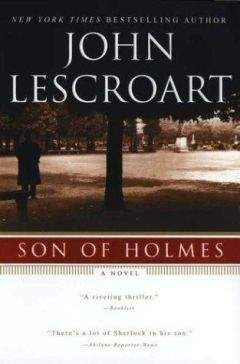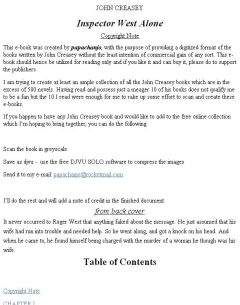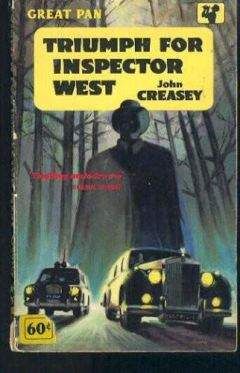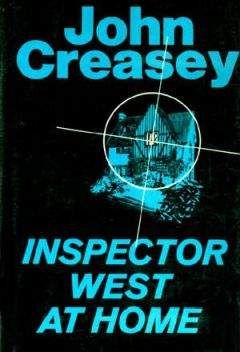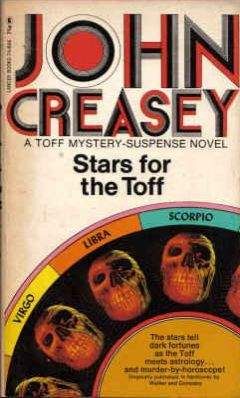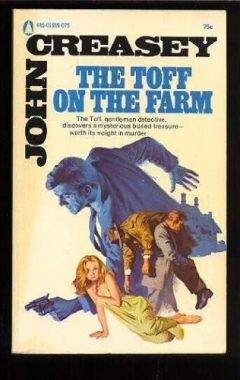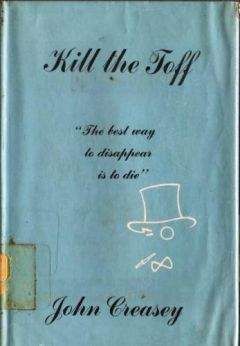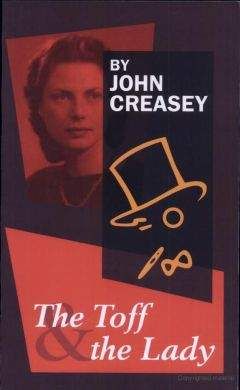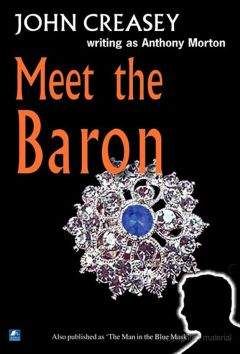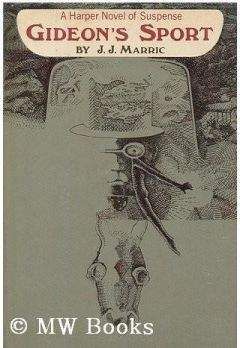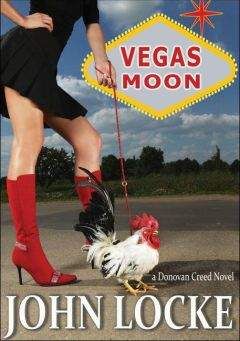John Creasey - Alibi
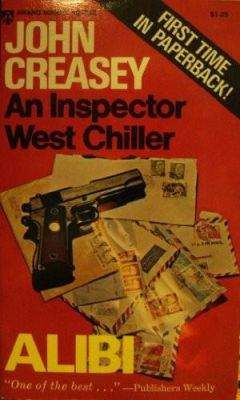
Скачивание начинается... Если скачивание не началось автоматически, пожалуйста нажмите на эту ссылку.
Жалоба
Напишите нам, и мы в срочном порядке примем меры.
Описание книги "Alibi"
Описание и краткое содержание "Alibi" читать бесплатно онлайн.
So was Rapelli’s manner.
He looked fit and rested, and there was a haughtiness about him which Roger hadn’t noticed before. He denied bribing Maisie or anyone else. He denied being at the Doon Club. He denied striking Verdi over the head. He denied everything.
“Whoever has told you these things is a liar,” he said flatly.
“But we can prove beyond doubt that you were at the Doon Club,” Roger insisted.
“No one. not even the great Superintendent West, can prove what isn’t true,” said Rapelli. “Whoever was there, it was not I.”
“Where are you getting the money from?” demanded Roger.
“I have no money. Miss Warrender made no charge for her help, and the other people are liars.” Rapelli’s voice was pleasant-sounding but just now tinged with bitterness. “The biggest liar is the woman, Dunster. I was with her before the others came in. First she admitted that, then she told a lie. Why don’t you go and worry her with your questions? You might get the truth out of her if you try.”
Roger left the prison at ten minutes to two, wholly dissatisfied. Now the weather was not only hot but sultry and he thought he heard thunder in the distance, while the sky was a metallic blue. He drove towards Westminster Bridge in thick traffic, and was at the far side, waiting at the traffic lights which protected the approach to Parliament Square when he heard his name on the crackling radio. A dozen other names had been almost inaudible, but he recognised his own in a flash, and switched to Information.
“This is Superintendent West,” he said. “I am at Parliament Square heading for the Yard. Will the message keep?”
“I doubt if you’ll think so, sir,” Information said. “A flash has just come in from division that Maisie Dunster has been found in her apartment, badly injured. A pretty messy business, they say.”
Roger felt himself going cold, and it was some time before he answered, roughly, “I’ll go to her flat right away.”
Chapter Sixteen
DYING STATEMENT
As Roger turned into the terrace where Maisie lived, an ambulance appeared from the other direction, white and shining. There were four police cars, three of them double-parked. Roger pulled up behind the third and jumped out, becoming one of a crowd of thirty or forty people being pushed back by two policemen. Men and women were at windows and doorways and gates; there was even a youth on a roof.
“Back a few yards, please,” one policeman was intoning.
“Make room for the ambulance, please.”
“Make room . . . Back a few yards . . . Make room . . .”
Roger pushed his way through the crowd which was showing neither resentment nor eagerness at being pushed back. He found himself confronted by a massive policeman whose huge hand was spread out, palm outwards; he touched but did not push Roger.
“Please go back, sir.”
“All right, constable, let me through,” Roger ordered.
“If you’re a relative—” The man turned a big, weather- browned face towards him. Recognising Roger, his eyebrows rose comically. “Oh, Superintendent! Please pass through, sir.”
Two ambulance men were on their way across the small garden with its table-smooth lawn; there were no flower beds. A policeman stood at the front door. Suddenly, pushed out ahead of the ambulance men, was a big, lean, hungry-looking man with high and shiny cheekbones and big and shiny nose. This was the Divisional Superinten-dent, Abe Court. He had big eyes with stubby eyelashes so black that it almost looked as if he wore eye shadow.
He espied Roger.
“Hallo, Superintendent.” He shook hands.
“Hallo,” said Roger. “How is she?”
“Not a chance,” Court answered grimly. “The doc’s with her now, and she’s asking for you.” As they went upstairs in the wake of the ambulance men Court went on, “Doc wants to give her a sedative, but I persuaded him to wait until you got here.”
Roger nodded. While the ambulance men were manoeuvring their stretcher up the narrow stairs, he slipped past them, and into Maisie’s room. A woman stood on one side of the bed, a man was bending over the other.
As Roger neared them, he saw Maisie’s head and face.
From the eyes downwards she appeared uninjured, but her forehead and her fair hair were a bloodied, broken, tangled mess. Roger gulped as he reached the doctor’s side. The girl’s eves, so brilliant and seductive last night, were swollen and bloodshot. Yet obviously she recognised him, and she turned her head.
“Two minutes,” the police surgeon said. He held a hypodermic syringe, already loaded.
Roger nodded, went down on one knee, and took Maisie’s limp hand.
“Who was it?” Roger asked, in a whisper.
She moistened her lips, and the woman moved from the other side of the bed and moistened them with a sponge.
“Just give me his name,” Roger urged.
“You—won’t believe me,” she muttered.
“Never mind whether I’ll Relieve you,” Roger said. “Maisie, I’m terribly sorry. An® the quicker I know the quicker we can get you to hospital and—”
He actually saw a movement at her lips.
“Waste of time,” she said. “I’m done for. It was— Mario.”
“Mario Rapelli?” he echoed, incredulously.
“There you are,” she said. “You don’t believe me.” She closed her eyes. “I didn’t know there were such things as —good cops. Give me a kiss—Handsome.”
The doctor had gone to the other side of the bed, the woman rolled up the girl’s sleeve, and Roger stood up and bent over her and kissed her lightly. Quite deliberately she opened her mouth, and he rested his lips on hers for a long moment. There were movements which he saw out of the corner of his eyes, and suddenly her lips, her face, her whole body went limp.
He stood up.
The doctor was putting the needle into its box, the woman and one ambulance driver were wrapping sheeting round Maisie’s head. Her eyes were closed, and he felt as sure as a man could be that she would never open them again.
• • •
Half an hour later, Roger was back at the Yard. For once, he wished Coppell were in his office; he wanted to discuss the situation with the commander. He went straight to his own office, and told Danizon, whose look of astonishment was almost boyish.
“But Rapelli was at Brixton all night!”
“Yes,” Roger said. “One place he couldn’t have got away from. There are three possibilities,” he went on in a clipped voice. “First, that Rapelli has a twin or a double. Second, that Maisie lied on her deathbed. Third, that she genuinely mistook her assailant for Rapelli. I don’t favour one idea against the other yet.” He dropped into the chair behind his desk. “Superintendent Court is handling the routine from division. There’s no trace of a break-in, and it looks as if the killer got in over the roof. Abe Court is checking the two divisional men supposed to be watching her. Whoever attacked her had a key to her room, possibly the house. The weapon was a hammer, taken from a cupboard in the room: it was under her bed and there were no fingerprints on the handle. Time of attack hasn’t been determined but it seems likely that it was around four o’clock, according to the thickness of the coagulation of the blood. She was found by one of her friends—Cleo, one of the would-be witnesses for Mario Rapelli—who couldn’t understand why she wasn’t up. They had a hairdressing appointment together. There’s a caretaker and general factotum in the house and he let this Cleo in with a master key.” Roger saw the glint in Danizon’s eyes, and shook his head. “The key was on a bunch which weighs about half a pound and hangs on the head of the caretaker’s bed. Not a chance that was the key that was used.” He paused, as Danizon finished writing, and went on, “Can you make a brief report from that, and start the file?”
“Yes, sir.”
“Thanks. Any messages?”
“They’re on your desk,” answered Danizon. “Your wife called just before you came in but she said it wasn’t urgent.”
Janet seldom called during the day; Roger wondered what it was about, but put it out of his mind.
Opening the top file, he saw several telephone messages. Not only Janet but Benjamin Artemeus had called, and a Harold Phillipson, of the Globe. Phillipson. He was the managing editor of the paper, and had certainly approved even if he hadn’t written the article so critical of him, Roger, and the Yard. The message ran, Can Superintendent West please call before one-thirty?
It was now nearly a quarter to two.
Roger put a call in to the newspaper, running over the details of the article, wondering again why Janet had called and what Artemeus wanted. And he was sharply reminded of the fact that he had not told Janet of the offer from Allsafe. The next moment his telephone rang and the operator said, “Mr. Phillipson, sir.”
“Thanks. Mr. Phillipson?”
“Good afternoon, Superintendent.” The editor had a deep, pleasing voice with a strangely sardonic intonation, with the emphasis on the “good” and the “super”. “I’m very glad you’ve called.”
“I’ve just got in from Chelsea,” Roger said. “I saw Maisie Dunster.”
“The young woman who really began all this,” Phillipson observed. “She died on the way to hospital. Did you know?”
Roger didn’t answer at once. He had been sure it was inevitable but still had a sense of shock. He was disturbed, too, because Phillipson had known before him.
There was a perfunctory tap on the door, and Danizon put his head into the room.
“I thought you should know that Maisie Dunster is dead, sir. She died on the way to hospital.”
“Yes,” Roger said. “Thanks.” As the door closed on Danizon he turned back to Phillipson. “I’m sorry, someone came into the office. Yes, I know about Maisie. I hope you know that I won’t rest until we’ve found her murderer.”
There was a long pause, before Phillipson answered.
“A good case could be made out for blaming the Yard for allowing her to be murdered, you know—particularly since she was a key witness in Rapelli’s defence.”
“Mr. Phillipson,” Roger said evenly, “no one is more keenly aware than I that we fell down on the job of watching her, but we are not legally responsible. Do you really want to make our investigation more difficult by throwing mud at us in your columns? Whether we’re wrong or right, some of it always sticks.”
“Sometimes it should,” Phillipson retorted. He still spoke with that sardonic intonation as if he were laughing at himself, at Roger or the situation. “However, I don’t propose to throw any more, but that isn’t what I wanted to talk about. I’m not sure we should talk over the tele-phone. Could you come and see me this afternoon?”
Roger hesitated. The editor of a national newspaper would not ask him to give up his time unless it were worthwhile. He wanted to interview the men who had been watching Maisie, and he wanted to concentrate on Rapelli, but neither was of urgent importance.
“Yes,” he answered. “About two-thirty.”
“I’ll be glad to see you,” said Phillipson. “Thank you.”
Roger rang off, and immediately put a call in to Janet, but there was no answer; she must have gone shopping or to one of her afternoon committee meetings. He called Artemeus, at Allsafe, half-expecting to find the man out at lunch. But no; he answered the company operator’s ring.
“Ah, Mr. West. Thank you very much for calling,” he said. “I’m particularly anxious to see you about a most unexpected development. Could you possibly spare half an hour this afternoon?”
It never rained but it poured. However, he should be away from the Globe’s office at about three or three- fifteen, however, and would be fairly near the Allsafe offices in the Strand. There was no reason why he shouldn’t look in, although every reason why Artemeus should not think him at the security company’s beck and call. But making a prestige issue was pointless now.
“I could look in briefly about three-thirty,” he said. “Perhaps a little earlier.”
“How very kind I I’ll be in my office and free from three o’clock onwards, and I won’t make any appointments until you’ve been. I do appreciate it.” Artemeus was almost effusive.
Roger rang off, and called Danizon.
“I want a car right away, for Fleet Street and the Strand,” he said. “I’ll be out for about two hours altogether.”
“Right, sir! I’ll fix it.”
Roger rang off again, and opened the Rapelli file, glanced through it, then put it in his black portfolio. Next he called Abe Court, who was a very brusque man on the telephone, one who always gave the impression that he couldn’t wait to ring off.
“Handsome? . . . I’ve a little more information but not much. Those two men we had on Maisie were diverted —there was an emergency call to Martin’s Bank in the High Street, and they were almost on the spot, so they took a chance. They arrested the bank raiders too—a couple who would have escaped if they hadn’t arrived when they did. Hardly the point, I suppose, two thieves in custody and one life lost, but that killing could have been an inside job. No certainty my chaps were to blame . . . They’re very cut up about it. Want to see them here or at the Yard? I’ve got “em here for you.”
“The Yard,” Roger said. “Four-thirty.”
“Right, Handsome. They’re both good men, don’t forget.”
Roger thought bleakly as he rang off: and Maisie is dead. Nevertheless, he was glad that Abe Court fought for his men, and God knew he was the last man to condemn an officer for using his own judgment in an emergency. He picked up the Fogarty file, which was very thin, and the file on Hamish Campbell, which was not much thicker. He put these in the portfolio, also.
A new Rover was outside the main entrance with a youthful, very blond, young detective officer standing by the door. His colouring reminded Roger vividly of Maisie’s fair hair, so spattered and soaked in blood.
“Good afternoon, sir.” The man opened the door.
“Hallo. Ashe.” Roger got inside, and waited for the other to get at the wheel before adding, “The Globe offices, park the car as near as you can and stand where you can keep me in sight. I might be out in twenty minutes.”
“Right, sir.”
The Globe’s offices were nearly brand new, very modern, and in an off-white which nevertheless reflected the glare off the sun. Fleet Street’s narrow roadway was jammed with cars, cabs and huge red buses; one was so used to them. Roger thought, it was difficult to see them as a major cause of London’s traffic problems. The pavements on either side were thronged, too; why did girls look so much prettier and more provocative in sleeveless cotton dresses? There was a space outside the newspaper’s offices, and a doorman in a puce-coloured uniform came forward smartly.
Подписывайтесь на наши страницы в социальных сетях.
Будьте в курсе последних книжных новинок, комментируйте, обсуждайте. Мы ждём Вас!
Похожие книги на "Alibi"
Книги похожие на "Alibi" читать онлайн или скачать бесплатно полные версии.
Мы рекомендуем Вам зарегистрироваться либо войти на сайт под своим именем.
Отзывы о "John Creasey - Alibi"
Отзывы читателей о книге "Alibi", комментарии и мнения людей о произведении.






